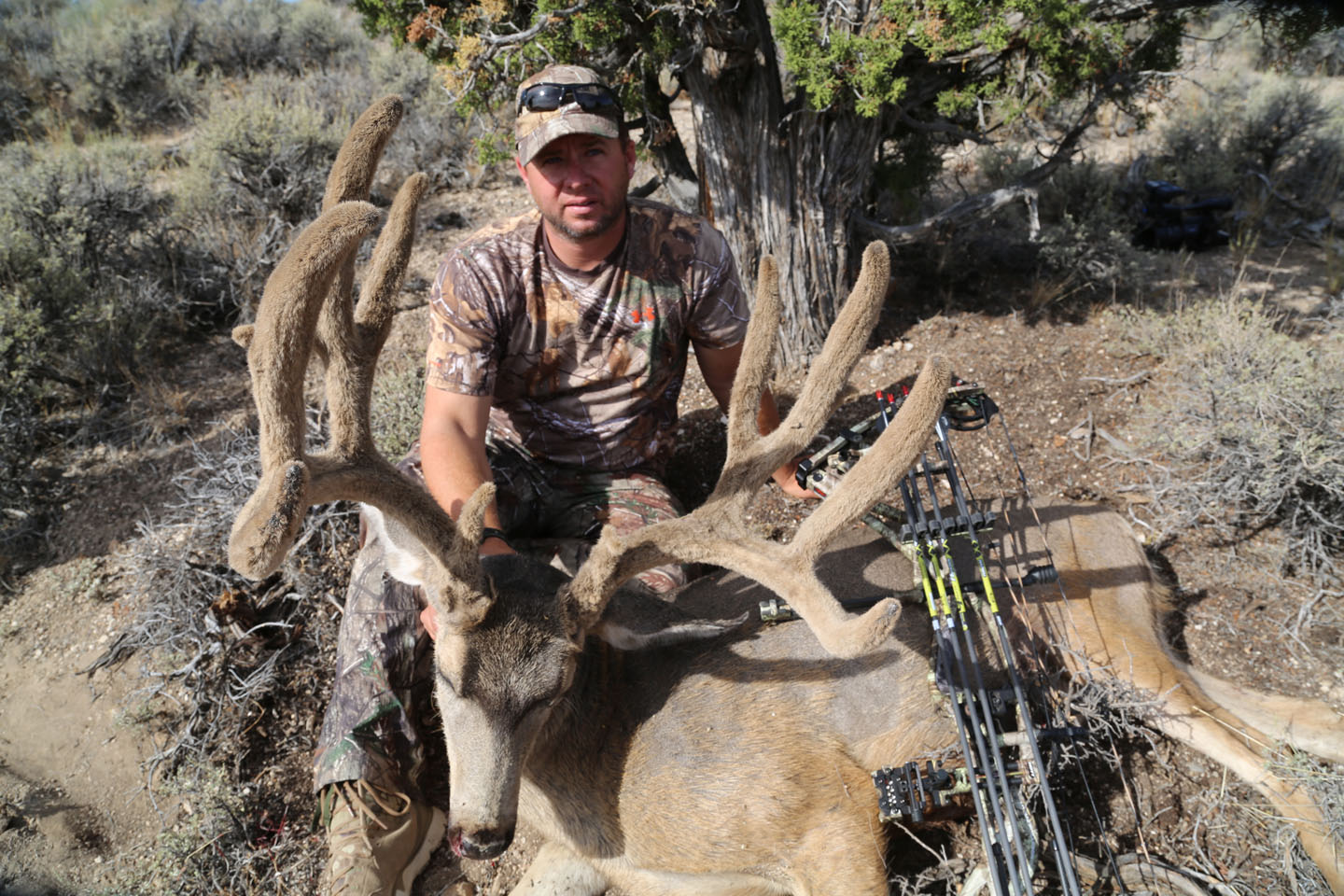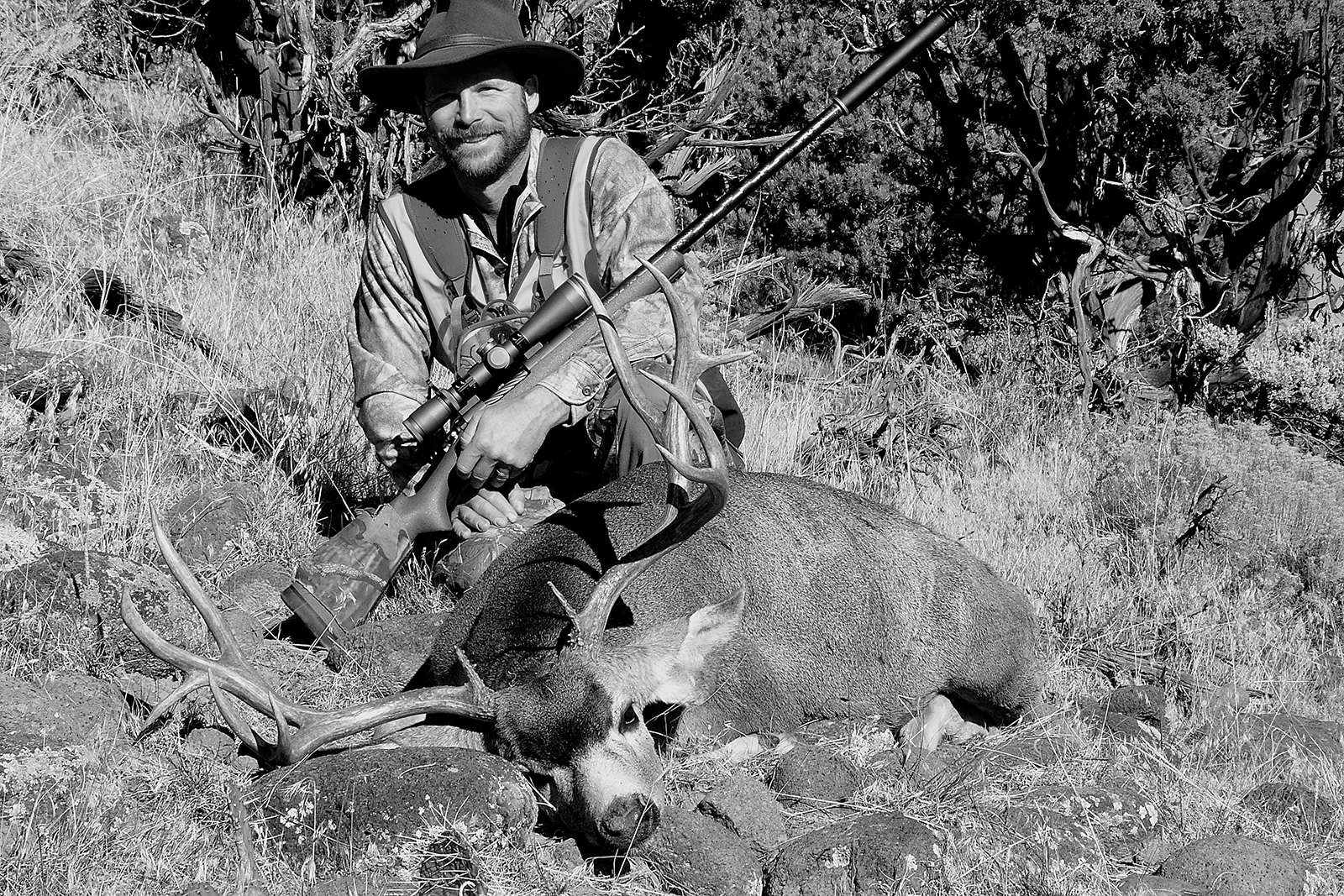4 Subtle Habits of Successful Western Hunters That Have a Major Impact
There's never an end to how much you can learn when it comes to successfully and consistently harvesting big game. However, sometimes basic and foundational principles that set the course for that success gets lost or crowded out among all the technicalities. Principles that not only shape the outcome of our hunts, but ultimately shape who we are. The hunter himself is the denominator of all the possible outcomes. Consequently, our approach to success can't start through external means, rather, it must come by internal refinement – even in the most basic forms.
Here are four fundamental habits and mentalities that render significant results in the field, proven with continued success from some of the most successful hunters in the West:
CONFIDENCE

"Arrogance is thinking you are better than you really are."
COREY JACOBSEN - ELK 101
I think confidence is a huge part of success. And it doesn't only apply to hunting. Confidence in business, in sports - and in hunting - is vital to success. Confidence is not the same thing as arrogance. Arrogance is thinking you are better than you really are. Confidence is knowing you have done all you can to be as prepared as possible to succeed.
Confidence is achieved through working hard to become the best you can be at whatever you are working towards becoming. In elk hunting, having confidence in multiple aspects – physical conditioning, proficiency with weapons and gear, knowledge of elk, calling, and so much more – is such a huge part of achieving success.
METICULOUS

"My philosophy: try to control as many of the factors that you can control."
JOHN STALLONE - DAYS IN THE WILD
There are so many things that go into a hunt, so many moving parts and I think that most of us tend to ignore that it's that complex. I hear guys say all the time "oh just put the time in" or "it's just luck", basically oversimplifying it. I think for me, attention to detail has been my biggest weapon when it comes to filling tags or just even having a fruitful hunt. I live each day paying attention to the details and the nuances of hunting, in fact I never stop hunting in a sense. I wake up in the morning I move about my house quietly, when I drive around for work I look at habitat, when I edit film or develop questions for my podcast I'm constantly hunting for ways to be better and learn more. I don't have OCD or anything like that, but I tend to plan most everything down to the minute details from how I handle my clothes or what I eat for breakfast.
It's these details that usually make the difference. It's what usually tips the scales in my favor. For instance I always try to be as low impact as possible, from being scent free to taking the long way around to minimize my chance of being detected. I know a lot of guys that slam their truck doors or talk at a normal level while at the truck. I for one go into stealth mode the second I open my truck door to leave for the hunt. On one or two occasions, I have walked up on elk feeding within 100 yards of my truck that simply wrote off the sounds of me pulling up as just another truck passing by on the road.
I don't think it's any big secret or superpower to be mindful of all the things that are a part of the hunt. There are so many things that could go wrong in hunting. So many factors that you cannot control, especially with bow hunting. My philosophy: try to control as many of the factors that you can control. Put as many things in your favor as possible, and you will start seeing more success. Another huge detail I think most of us overlook is spending time learning about the game we hunt. Like really looking at it from a biologist's perspective, on how they behave and react to certain conditions or times of year. For instance how game uses the landscape in normal conditions versus when they are pursued by a predator or by hunting pressure.
THE UNIT IS THE LIMIT

"Nothing is out of the question when I go into a unit."
JASON CARTER - EPIC OUTDOORS
The main thing I like to do to when I pre-scout is take a trip around the entire unit. I go to the middle, the sides, around the edges etc., and I'm basically looking for feed, burns or reseeded areas or whatever corresponds to the animal I'm learning about. Obviously, with deer I do some things a little different than I do with elk, but overall I'm just taking on a perspective of the unit as a whole and of what's available. Undoubtedly, there's some country that's just not going to have deer or elk in it, whether it be wide-open flats or salt flats and so-on. There's a lot of different country out there, and some areas just aren't really huntable or they lack feasible access and glassing knobs, or whatever it may be. So, there's some country that can be eliminated right off the bat.
But nothing is out of the question when I go into a unit. I don't limit myself to hunting close to town or in specific areas simply because I like the look of it. It doesn't matter what I like. It's what the deer like, and what the elk like. So, I'm always thinking outside the box and willing to adapt depending on the year, depending on the species and depending on the season. Be willing to adapt and take it all on. Don't just hunt places you've always hunted or do it the way you've always done it. Think outside the box and do it different, if you do something different than most hunters, you're going to find animals that are dying of old age or have a better chance of finding animals that have escaped all the other hunters. For example, the general archery hunt strategy is to go high and everybody goes high, so the bucks down on the lower ranges are getting passed over. Overall, don't leave anything out of the question and limit yourself. I like to be able to hunt the entire unit no matter the situation.
FLEXIBILITY

"I...work with my rifle and scope until they are like an extension of myself."
ARAM VON BENEDIKT - OUTDOOR LIFE
One thing that I believe makes a huge difference in anyone's hunting success is skill with your rifle. Lots of opportunities are lost simply because a hunter can't find a good field position, or can't find the animal in their scope, or simply can't make a tough shot, be it at 50 yards or 500. I personally train from every possible field position, do extensive dry-fire practice, do thorough accuracy testing, shoot extensively, and work with my rifle and scope until they are like an extension of myself.
What has been the biggest factor in your own success?
